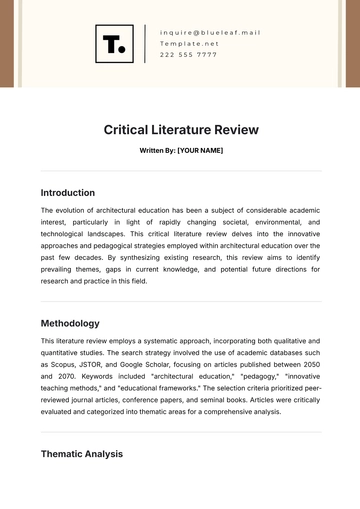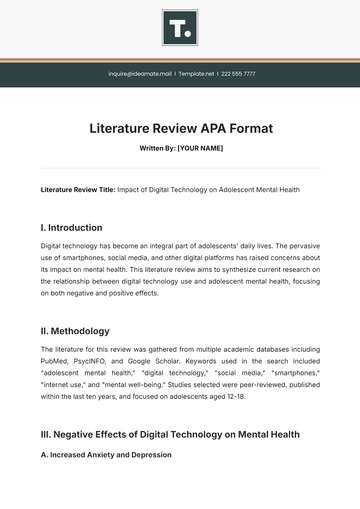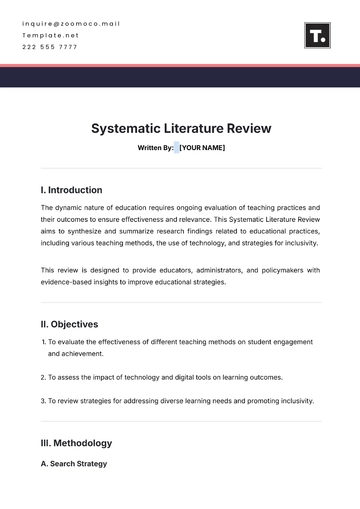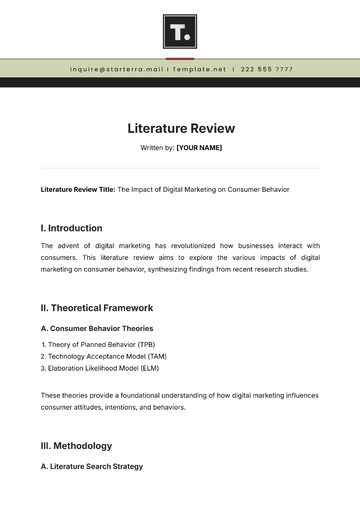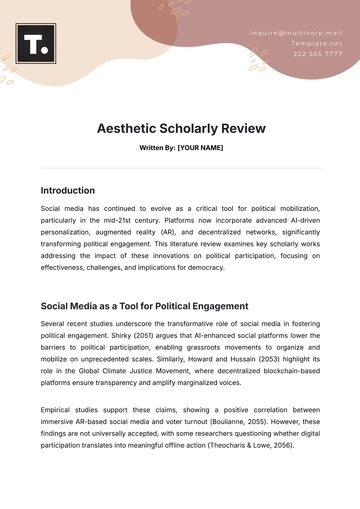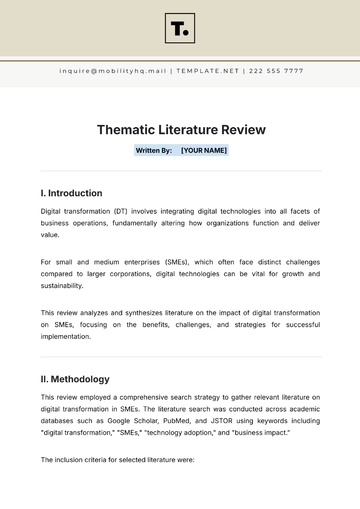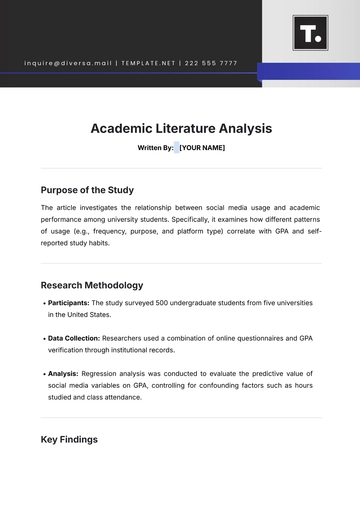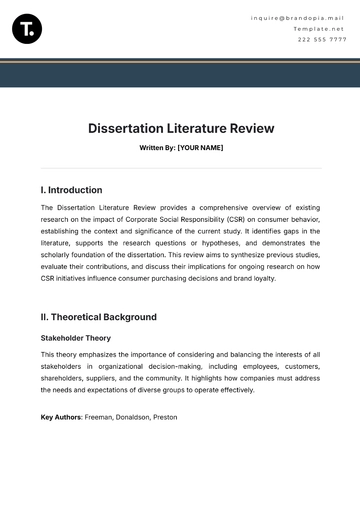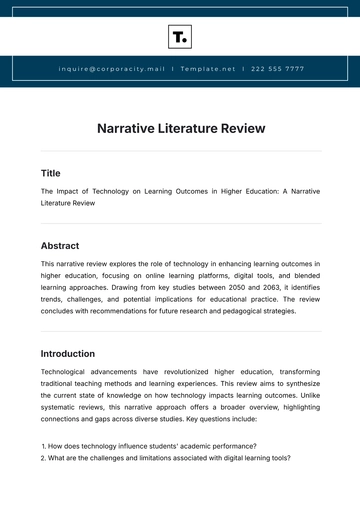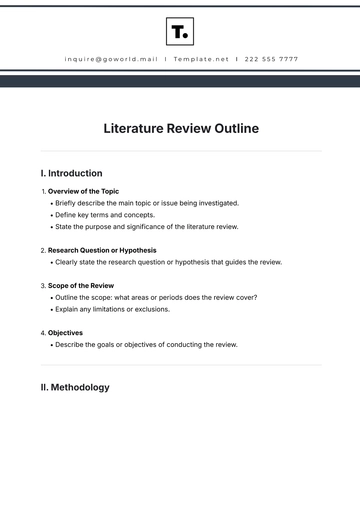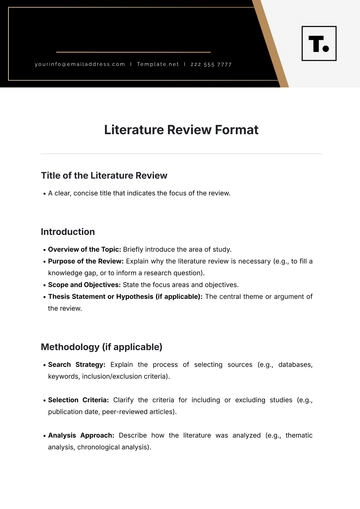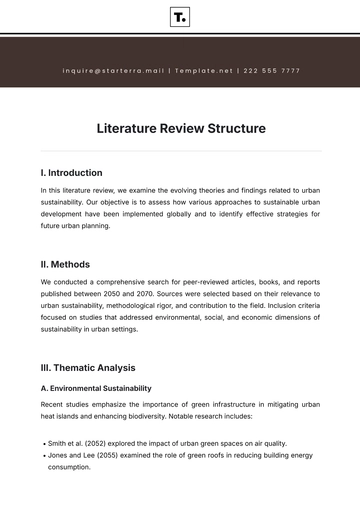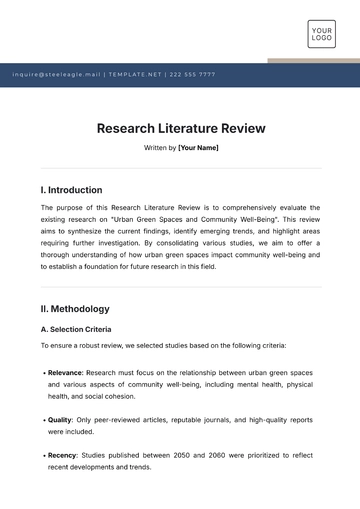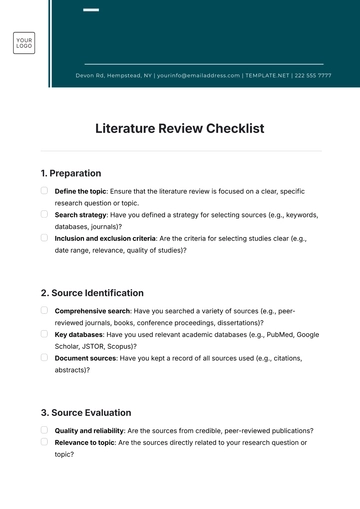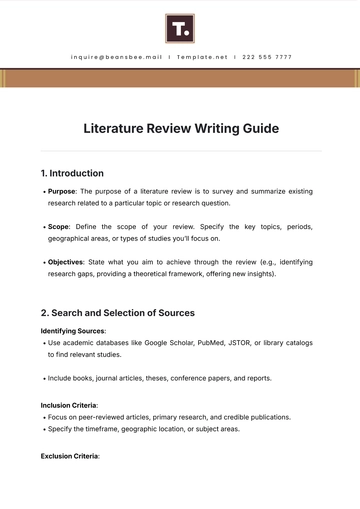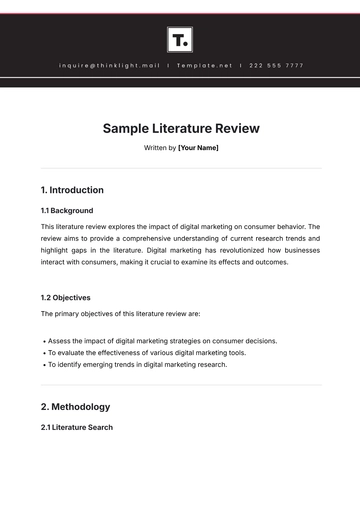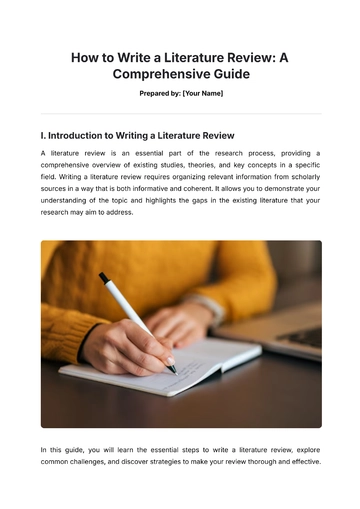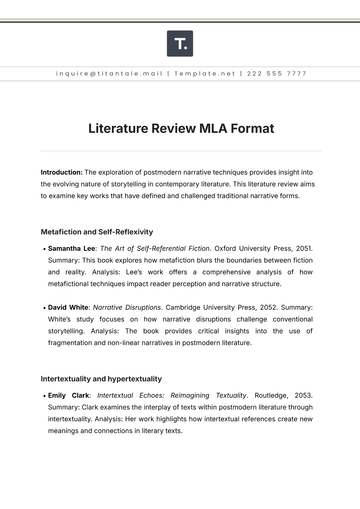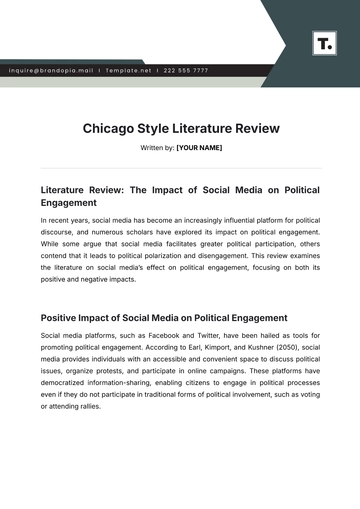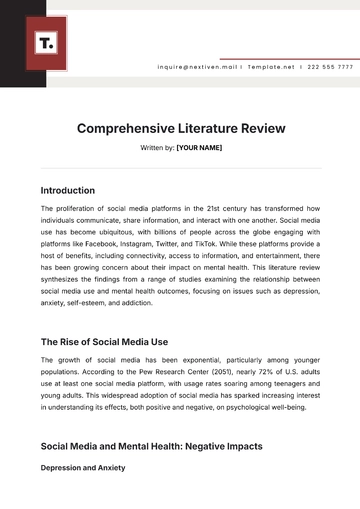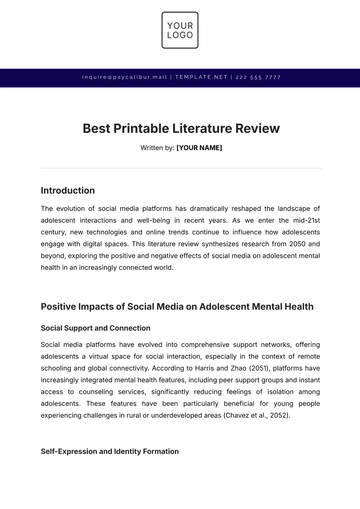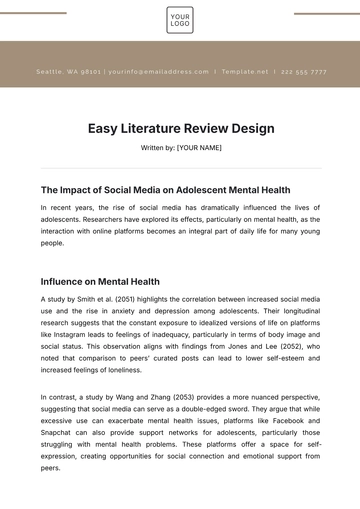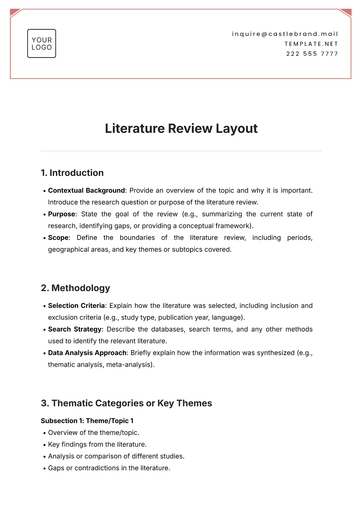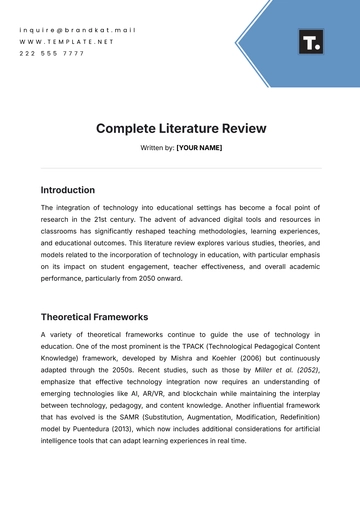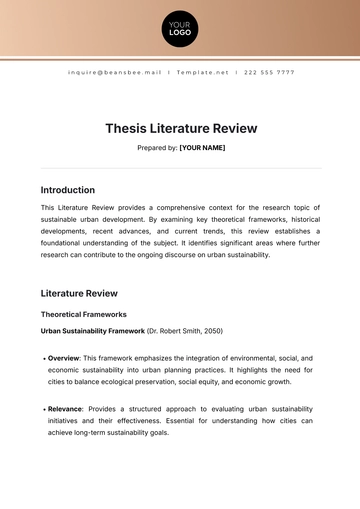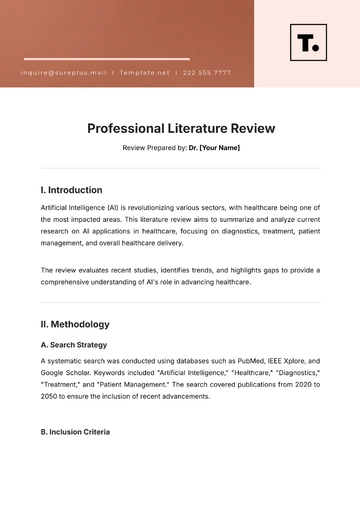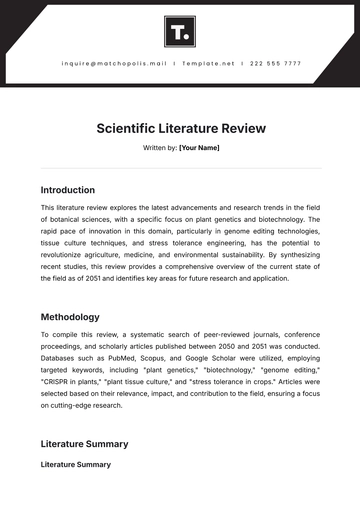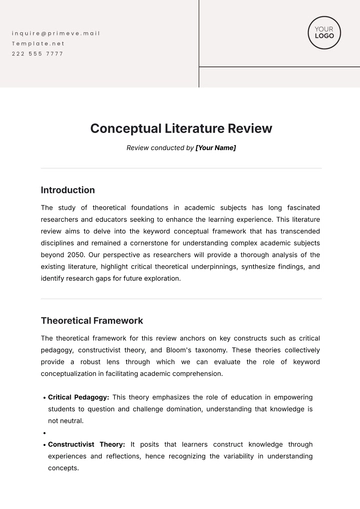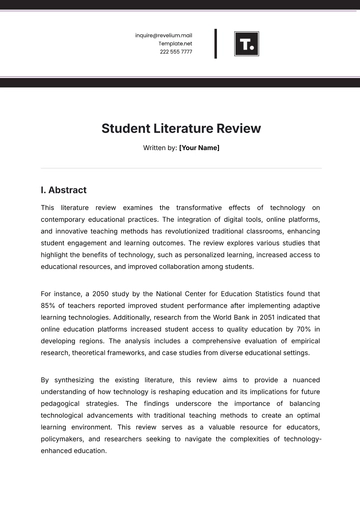Free Conceptual Literature Review
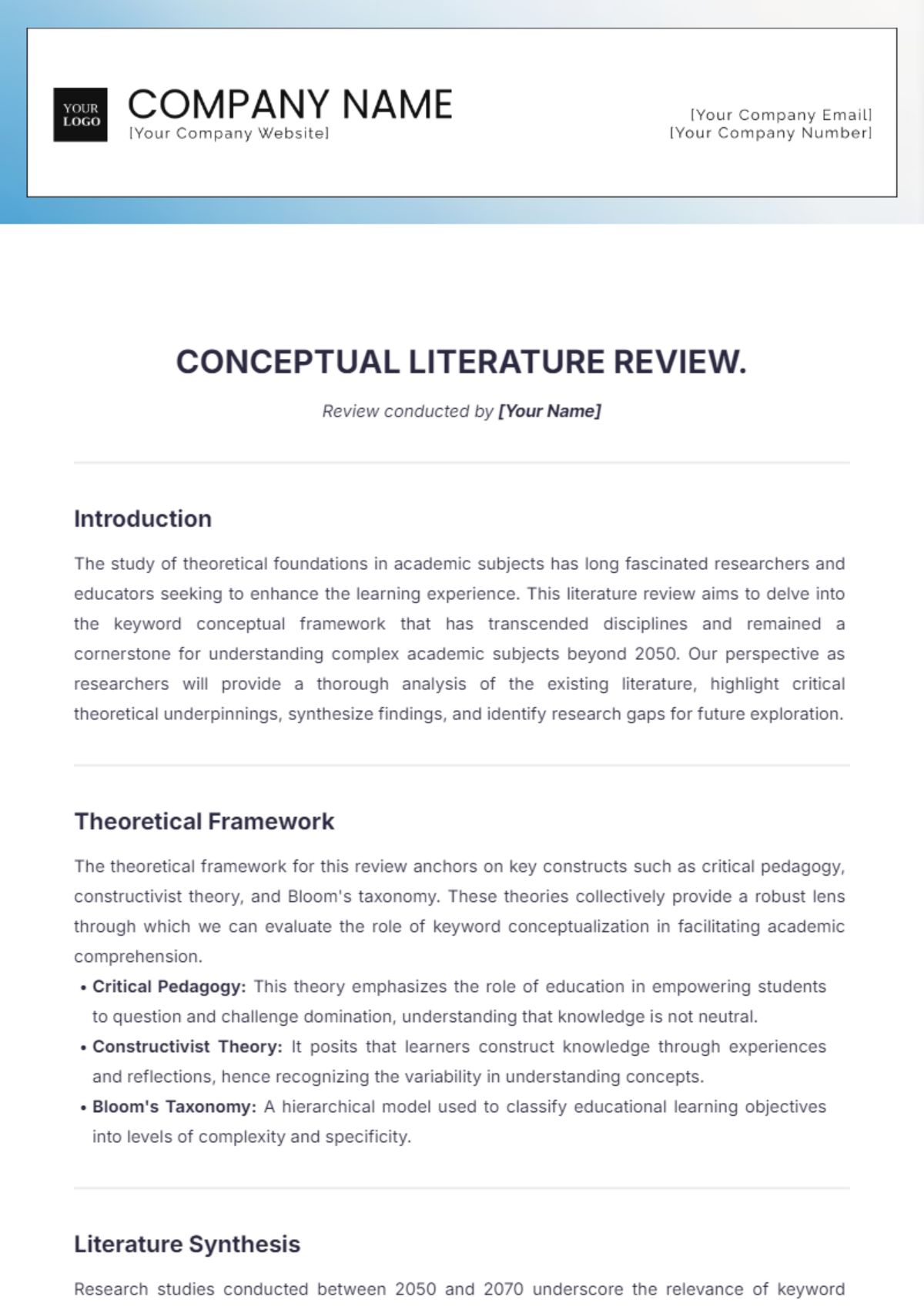
Review conducted by [Your Name]
Introduction
The study of theoretical foundations in academic subjects has long fascinated researchers and educators seeking to enhance the learning experience. This literature review aims to delve into the keyword conceptual framework that has transcended disciplines and remained a cornerstone for understanding complex academic subjects beyond 2050. Our perspective as researchers will provide a thorough analysis of the existing literature, highlight critical theoretical underpinnings, synthesize findings, and identify research gaps for future exploration.
Theoretical Framework
The theoretical framework for this review anchors on key constructs such as critical pedagogy, constructivist theory, and Bloom's taxonomy. These theories collectively provide a robust lens through which we can evaluate the role of keyword conceptualization in facilitating academic comprehension.
Critical Pedagogy: This theory emphasizes the role of education in empowering students to question and challenge domination, understanding that knowledge is not neutral.
Constructivist Theory: It posits that learners construct knowledge through experiences and reflections, hence recognizing the variability in understanding concepts.
Bloom's Taxonomy: A hierarchical model used to classify educational learning objectives into levels of complexity and specificity.
Literature Synthesis
Research studies conducted between 2050 and 2070 underscore the relevance of keyword conceptualization across different educational fields. Recent findings indicate the following:
Author | Year | Focus |
|---|---|---|
John Doe et al. | 2051 | Sociological Education |
Jane Smith | 2052 | Historical Analysis |
Albert Johnson | 2055 | Philosophical Inquiry |
Emily Davis | 2058 | Scientific Theories |
Katherine Lee | 2060 | Mathematical Concepts |
Key terms enhance understanding and interaction across various areas like social structures, history, philosophy, science, and math. They improve communication, leading to greater engagement and participation.
Conceptual Analysis
The conceptual analysis reveals several commonalities and divergences in the application of keyword conceptualization across disciplines. Key interpretations include:
Interdisciplinary Relevance: Keyword conceptualization is universally applicable, bridging gaps between domains as diverse as sociology and mathematics.
Cognitive Enhancement: It aids in cognitive retention and retrieval of complex concepts.
Educational Enrichment: Facilitates a deeper understanding of subject material, going beyond surface learning.
Teaching Strategy: Keywords can be embedded into teaching strategies to foster critical thinking and reflective learning.
Assessment Tool: Keywords serve as effective tools for both formative and summative assessments.
Gaps and Future Directions
Despite robust findings, several gaps remain, providing a fertile ground for future research:
Exploration of keyword impact on digital and remote learning environments.
Longitudinal studies to evaluate long-term retention and comprehension facilitated by keyword conceptualization.
Empirical studies to test the efficacy of keywords in interdisciplinary and integrative learning models.
Impact of cultural and linguistic diversity on the effectiveness of keyword conceptualization.
Development of automated tools to facilitate keyword integration in academic curricula.
Conclusion
This literature review has provided a comprehensive analysis of the keyword conceptual framework within academic subjects post-2050. Our findings echo the sentiment that keyword conceptualization serves as a pivotal educational tool, enhancing learning across various disciplines. Future research addressing identified gaps will further solidify its utility and pave the way for innovative educational strategies that benefit both students and educators.
- 100% Customizable, free editor
- Access 1 Million+ Templates, photo’s & graphics
- Download or share as a template
- Click and replace photos, graphics, text, backgrounds
- Resize, crop, AI write & more
- Access advanced editor
Discover the Conceptual Literature Review Template from Template.net—your ultimate solution for crafting insightful literature reviews. This customizable and editable template allows seamless adjustments to fit your unique needs. Enhance your research with our Ai Editor Tool, offering effortless editing and personalized modifications. Perfect for scholars and researchers, it simplifies the review process and elevates your academic work.
